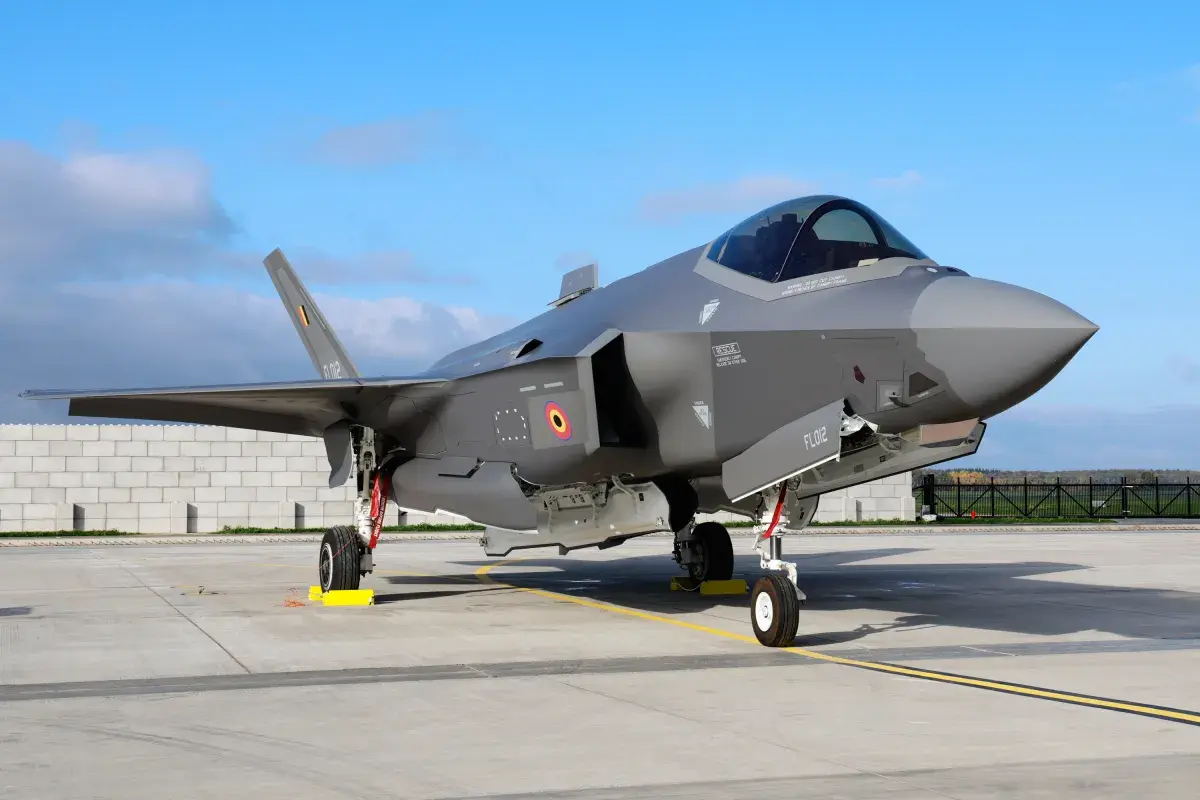
The Trump administration is weighing Saudi Arabia’s request to purchase F-35 fighter jets, a potential deal that has reportedly cleared a key Pentagon hurdle, sources familiar with the matter told Reuters.
The Trump administration has mounted a major push for deeper Gulf security partnerships, through arms sales and an expanded U.S. military presence. The White House recently signaled a new security initiative with Qatar, and Riyadh is understood to be eyeing a similar framework with Washington.
Newsweek has contacted the U.S. Defense Department for comment.
Why It Matters
The kingdom has requested up to 48 F‑35 jets, but the deal had been stalling amid Washington’s reluctance because of its policy of maintaining Israel’s qualitative military edge and concerns about regional partners’ ties to strategic rivals.
The F-35 incorporates stealth technology that allows it to evade enemy detection and is considered to be one of the world’s most advanced fighter aircraft.
The recent move comes ahead of a U.S. visit this month by Crown Prince Mohamed bin Salman, an ally and “friend” of President Donald Trump. Saudi Arabia was Trump’s destination in May on the first overseas trip of his second term and the two leaders signed an historic $142 billion arms deal that, according to the White House, is the largest defense sales agreement in history.
What To Know
U.S. officials told Reuters on Wednesday, on condition of anonymity, that the F-35 deal is moving through the system and has now reached Secretary of Defense level, after the Pentagon’s policy office reviewed the potential transaction for months.
Under the Biden administration, F‑35 sales to Gulf states have been tied to the Abraham Accords and broader normalization of relations with Israel. The United Arab Emirates (UAE) and Bahrain signed the accords in 2020.
The UAE broadened diplomatic, cultural and economic ties with Israel in the years that followed, developing faster than the first Arab states to sign peace treaties with Israel—Egypt and Jordan—in the 1970s. Still, an F‑35 deal with the UAE did not materialize, and amid continued U.S. review and policy constraints, the UAE eventually withdrew its purchase request.
Saudi Arabia has long been seen as the next major potential candidate to sign the Abraham Accords, but the kingdom has been reluctant to put pen to paper as long as a negotiated solution for Palestine remains unresolved. Riyadh has actively pushed for the recognition of a Palestinian state and successfully advanced the agenda at the United Nations alongside France in the aftermath of the Gaza war.
What People Are Saying
A military and defense blogger using the account handle @SMmiliitary wrote in Arabic on X on Wednesday: “If Saudi Arabia acquires 48 F‑35s, the entire balance of power in the Middle East would be reshaped. Soon, talk of Israeli superiority will become a thing of the past; this deal would plague the haters if it went through.”
President Donald Trump said told FOX Business’ Maria Bartiromo on October 17, speaking of the Abraham Accords: “I hope to see Saudi Arabia go in and I hope to see others go in. I think when Saudi Arabia goes in everybody goes in.”
Brian Katulis, senior fellow at the Middle East Institute, wrote in an analysis on October 27: “Trump 2.0’s inclination toward an ‘America First’ unilateralism can be seen in how it has managed most key relationships across the world, particularly in Europe and the Western Hemisphere. But that tendency has seemingly been more muted and less present in its approach to the Middle East, a region that is higher on the priority list for Trump’s national security agenda than it was during the opening months of the preceding US administration.”
What Happens Next
Sources say the deal still requires Cabinet approvals, presidential sign-off, and congressional notification before receiving the ultimate green light. The Saudi leader is expected to visit the U.S. on November 18 and meet with Trump at the White House.
